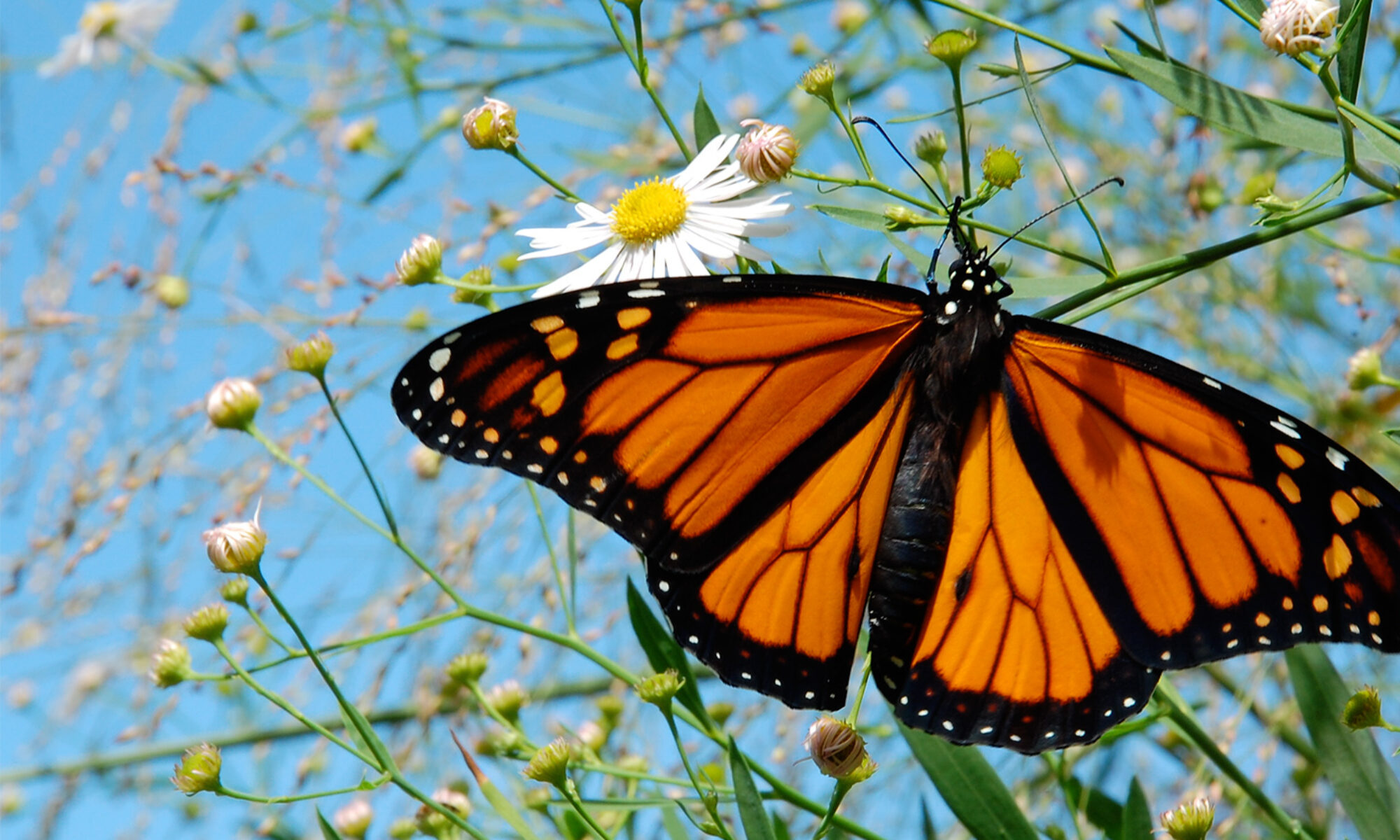With all the news about Colony Collapse Disorder affecting honey bees, we’ve become very aware of how important they are to our food supply.
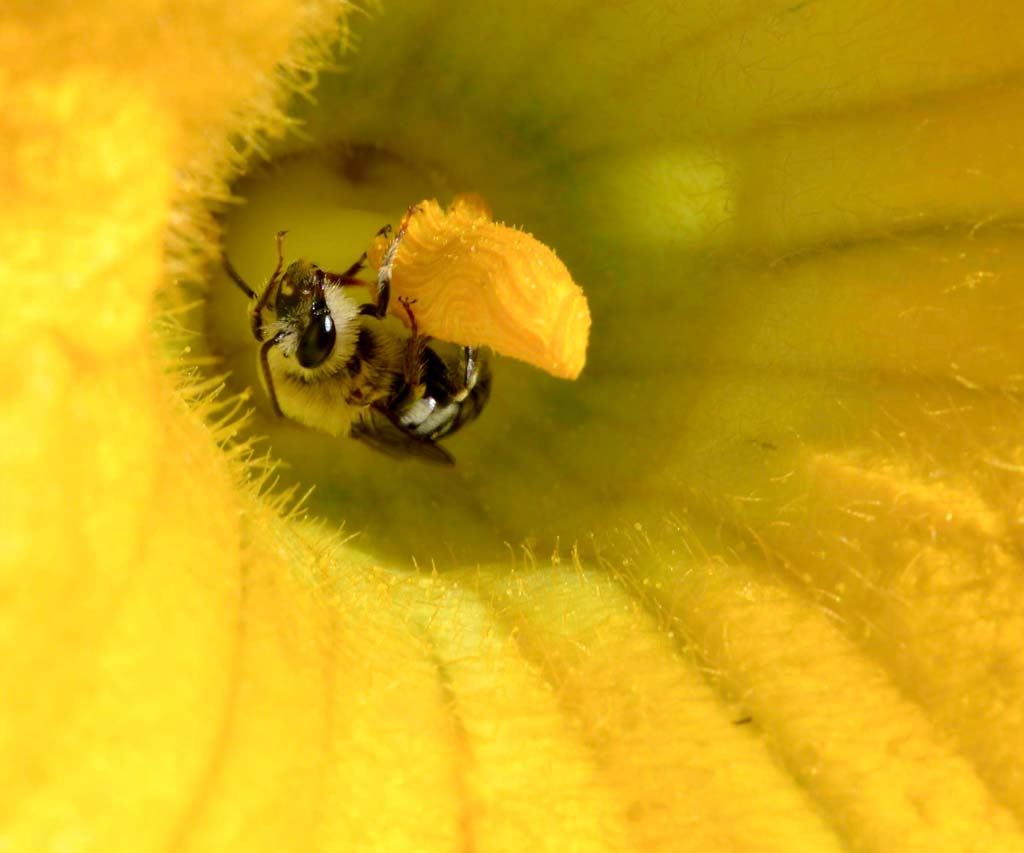
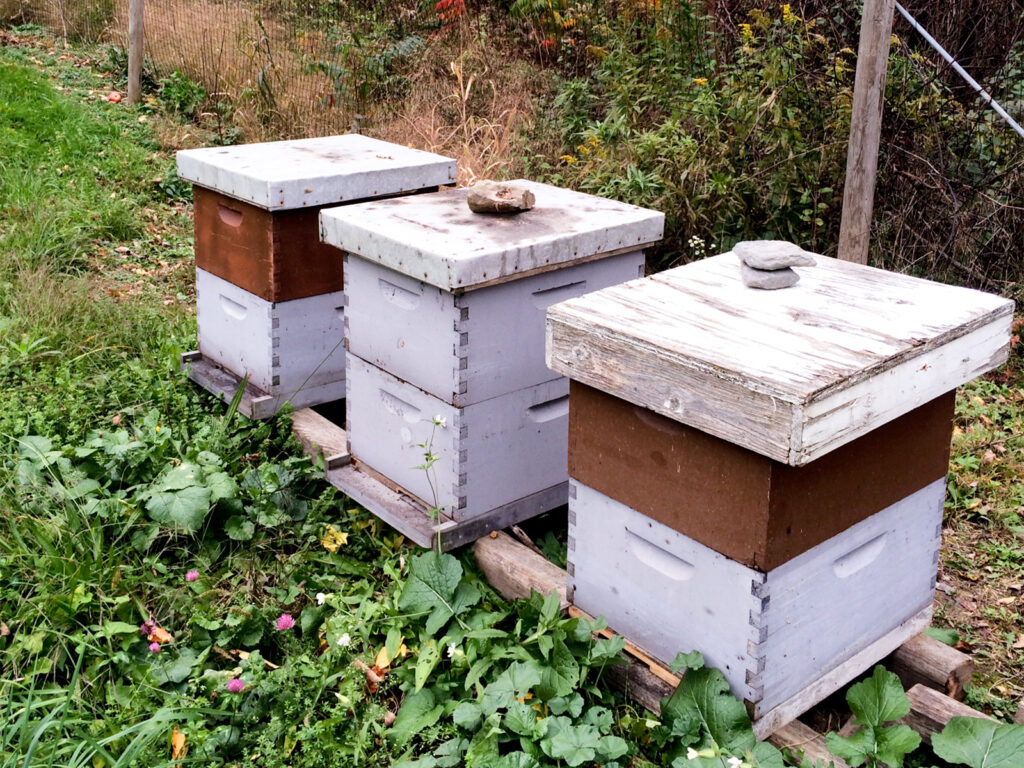
Honey bees have become important in modern agriculture, such as at this local apple orchard.
But they aren’t native, and reliance on them has overshadowed the importance of our native pollinators.
In fact, research at Cornell finds that native bees can do the job!
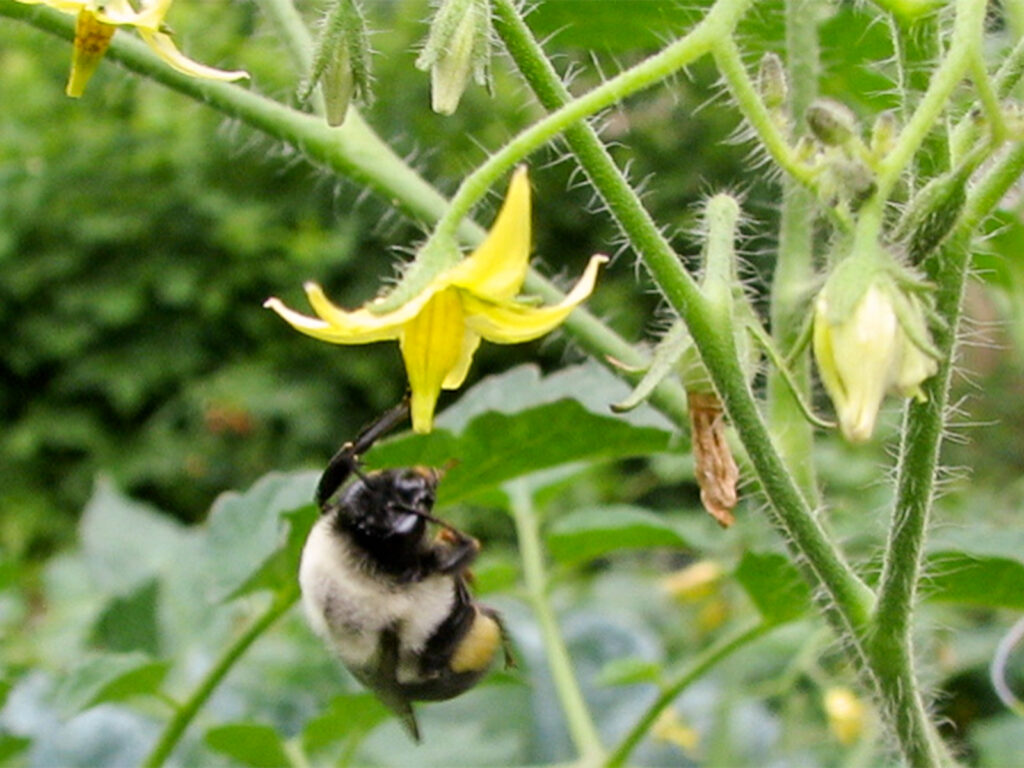
In fact, honey bees can’t even pollinate some plants, such as tomatoes. Bumble bees have a special kind of pollination called buzz pollination.
(See Resources below for a video showing this amazing phenomenon!)
Not just produce!
In our edible garden, we rely on bees to pollinate our fruits and vegetables, of course, but there’s more!
Bees pollinate the food that is fed to animals to produce foods such as milk. And bees pollinate the plants the produce fibers, such as flax or cotton.
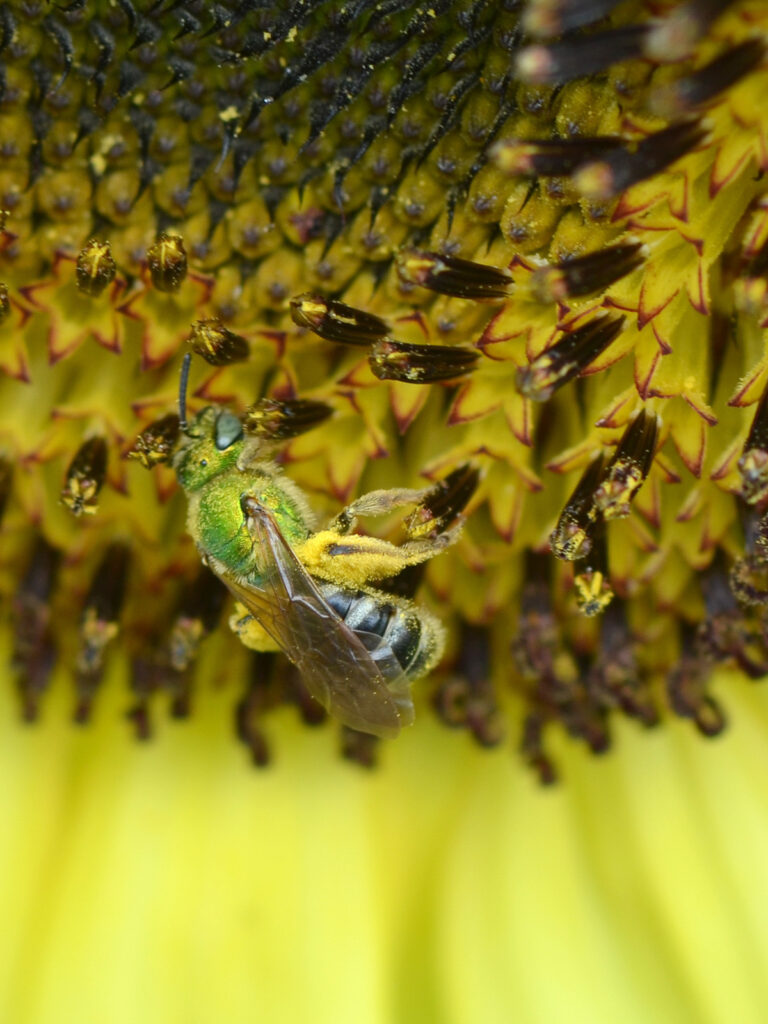
Most people recognize the agricultural importance of bees, but just as important, native bees are essential pollinators in the world beyond our yards and farms, since about 75% -80% of these non-agricultural plants rely on animal pollinators — not wind — to produce seeds for the next generation of plants.
What would happen to all those plants in the wild if there were no native bees?
AND what would happen to humans if these ecosystems collapsed?
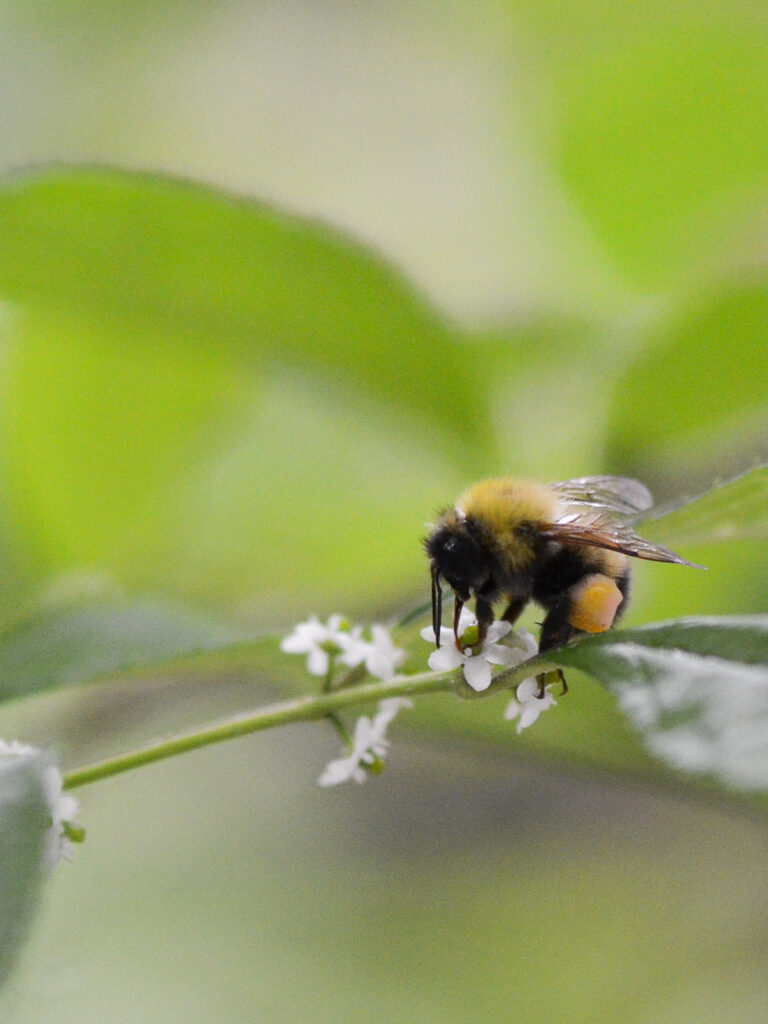
And besides plants in the wild, who would pollinate the plants I grow in my own yard for birds and other creatures?
My serviceberries, dogwoods, winterberries (pictured), spicebushes and the like all need to be pollinated to form berries for the birds.
Why are bees so important?
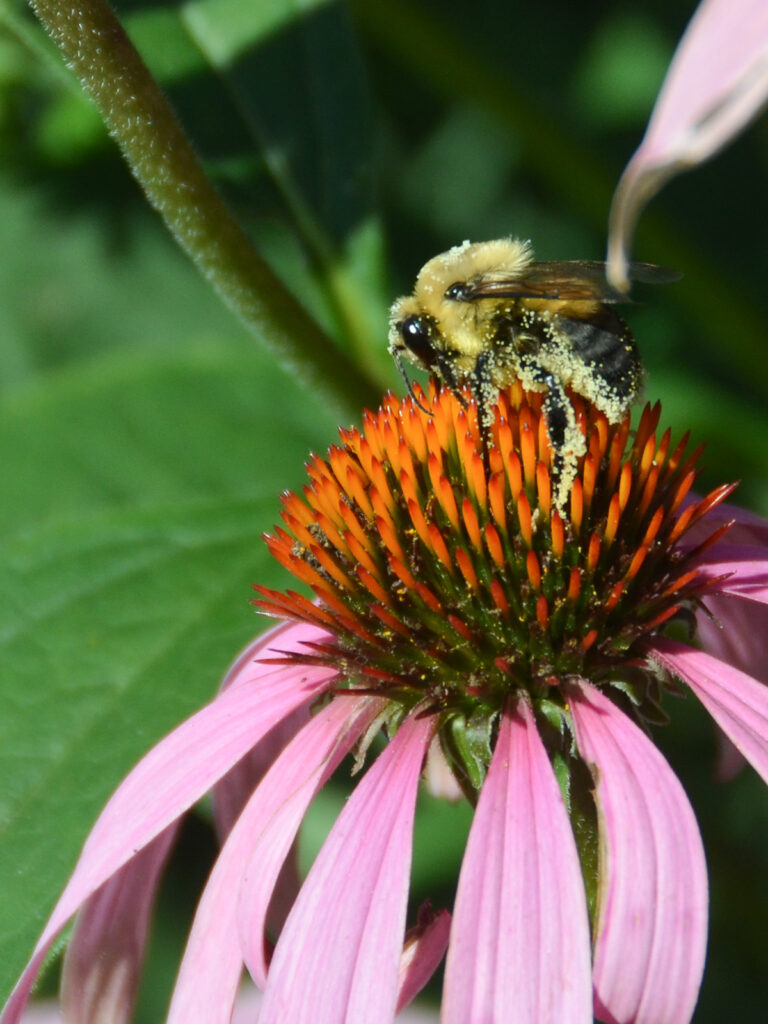
Many creatures, such as bats (especially in the Southwest), hummingbirds, butterflies, beetles, and other insects are pollinators, but bees are especially important. Why?
Because unlike other pollinators that unintentionally transfer pollen as they’re getting nectar, bees intentionally gather pollen as food for their offspring.
Of course, they don’t know they’re pollinating flowers, but their bodies are designed to get pollen, and so they’re especially effective in moving pollen around.
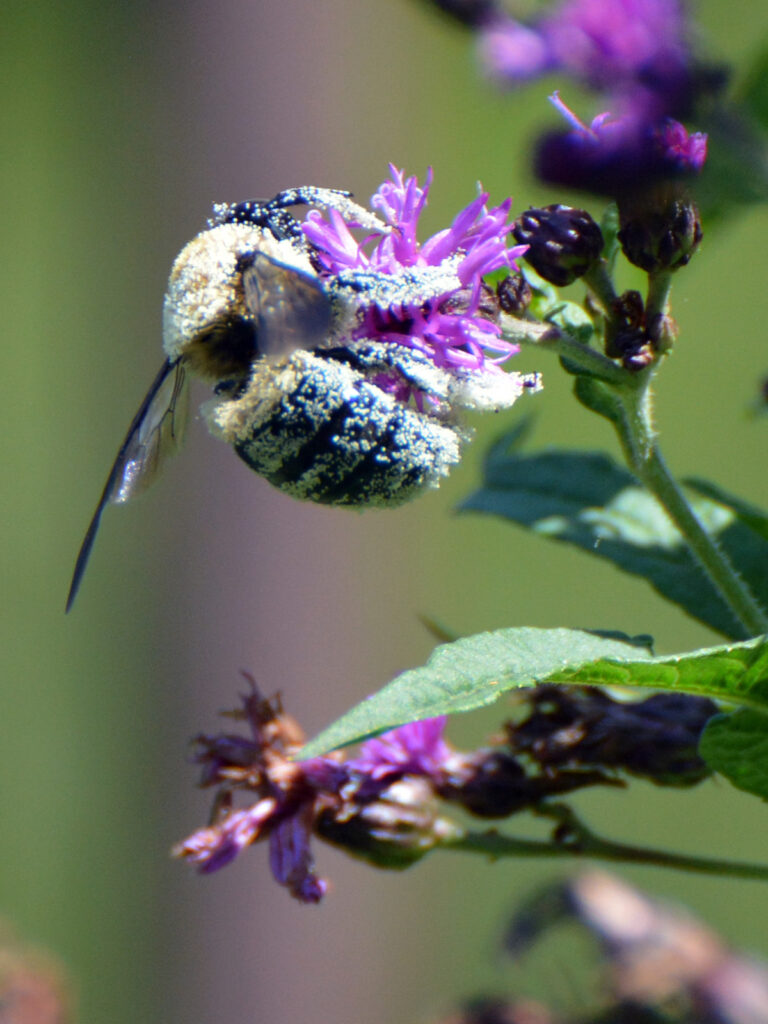
This bumble bee has pollen grains sprinkled all over its body, sure to leave some on the next flower it visits.
In addition, it tends to visit one type of flower repeatedly rather than visiting different species of flowers randomly as other creatures may do.
This behavior is an obvious advantage to the plant that needs pollen from its own species.
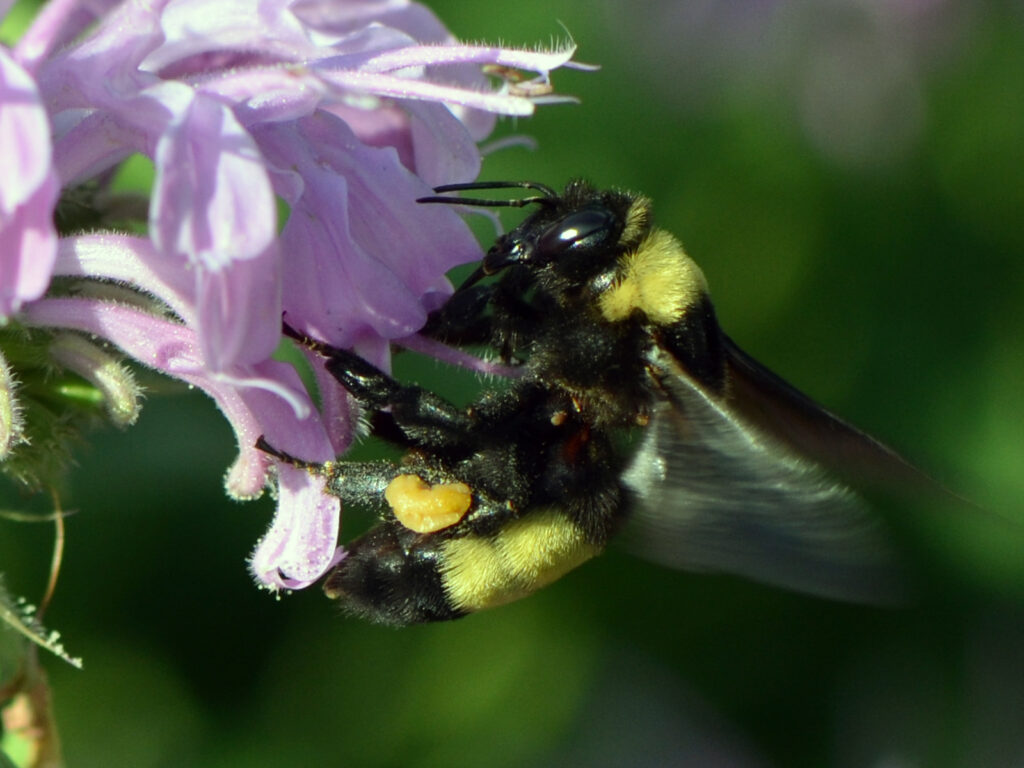
This black and gold bumble bee has collected pollen in its “pollen basket.” This pollen basket is known as a corbicula.
And our habitat garden helps our edible garden
Someone (I can’t remember who) once told me about their friend who was growing tomatoes in pots on her sunny glassed-in porch. She was disappointed and puzzled because the tomato plants she had tended so carefully had blossoms but had never produced any fruit! Hmmm… I wonder why…
Our habitat garden helps make Our Edible Garden much more productive by attracting and supporting a large population of bumble bees and many other kinds of bees.
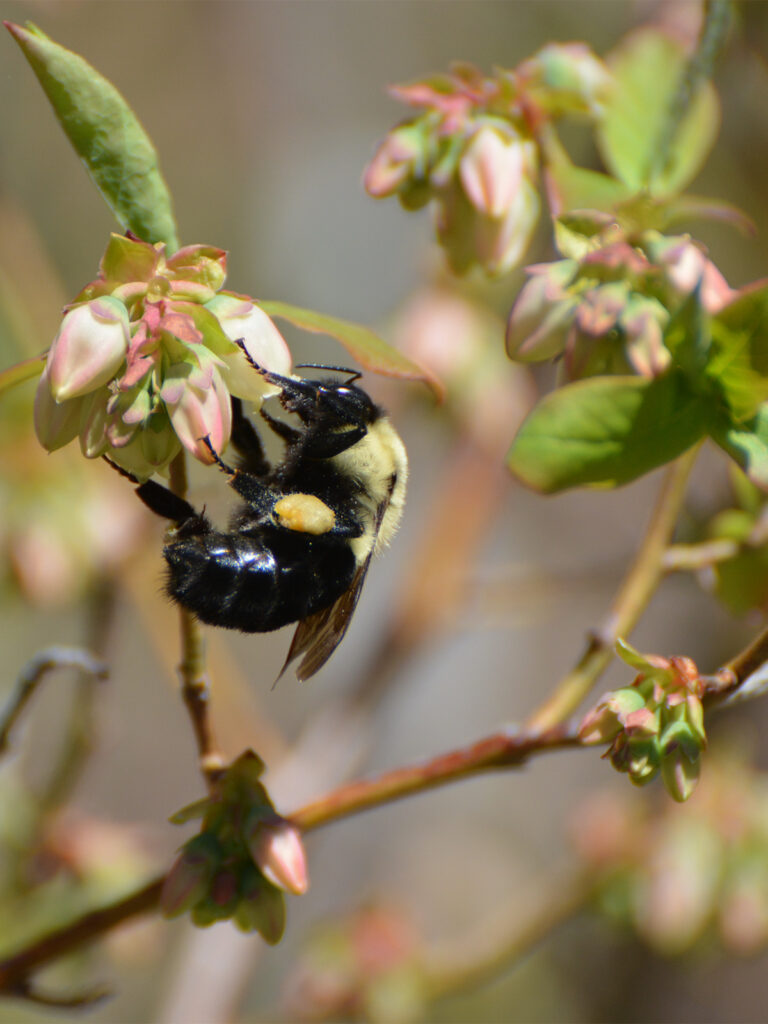
Bumble bees are my favorites. They’re social insects, but their colonies are much smaller than a honey bee colony since only the queen survives the winter and so a colony must start from scratch each spring. And even though they’re a social bee, they’re not aggressive when foraging out and about.
Bumble bees are particularly helpful since they can pollinate tomatoes and other plants that improve their yield with their special “buzz pollination.”
An unexpected benefit
Once we became aware of pollinators and other insects, we found that they’re just as fascinating as other creatures.
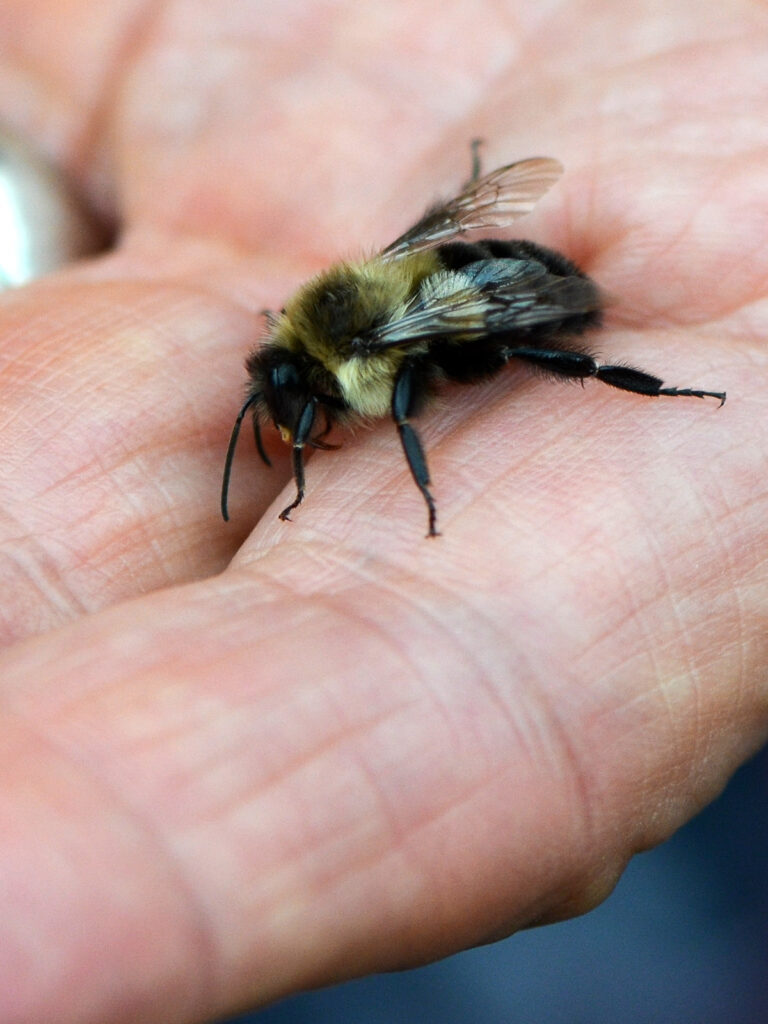
Native solitary bees aren’t aggressive, so we can enjoy them “up close and personal.” The difference between solitary bees and social bees (such as honey bees or bumble bees) is that solitary bees aren’t defending a hive. They just lay their eggs and leave. And they don’t care that we enjoy watching them.
But we’ve found that even bumble bees aren’t aggressive, and we’re happy they’re all over our yard. Their busy buzzing makes our yard a very pleasant place to be — a yard truly full of the sounds of life.
Resources
- NY Times:
- Unraveling the pollinating secrets of a bee’s buzz – bumblebee’s special “buzz pollination”
- Xerces / PBS:
- About bumble bees including a buzz pollination video (bottom of the page)
- Beyond Pesticides:
- Will pollinator declines increase global malnutrition and disease? Yes, says new study – research done at Univ. of Vermont and Harvard Univ., PLoS ONE, 2015
- Kenyan farmers resort to hand pollination after pesticide use kills off local pollinators
- BugGuide:
- BOOKS
- Bee Basics: An Introduction to our Native Bees by Beatriz Moisset and Stephen Buchmann – a beautiful 40-page booklet available as a free download from the USDA Forest Service – EXCELLENT!
- Bumble Bees of the Eastern United States by Sheila Colla et. al. – a guide to all 21 species of bumble bees of the East, available as a free download from the USDA Forest Service. Excellent!
- Pollinator Partnership:
- Pollination Guelph:
Reflection
… honeybees appeared to be getting credit from farmers for work that other bee species were actually doing. We continue to get crops of blueberries, cranberries, cucumbers, watermelons and pumpkins, but honeybee hives in those fields are not filled with pollen from those crops.
~ , The Bee: A Natural History; New York Times, 9/25/14
